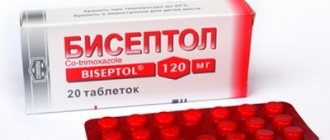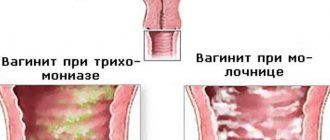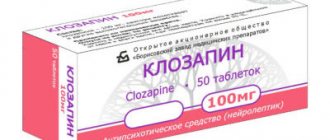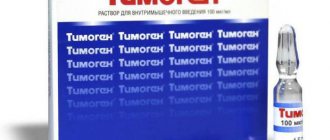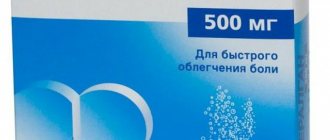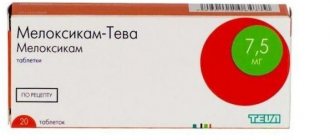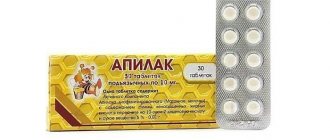- October 14, 2020
- Other drugs
- Ulyana Romanova
The drug "Mezaton", the instructions for use of which will be studied in this article, is an alpha-adrenergic agonist that helps increase blood pressure and narrow arterioles. What kind of medicine is this? In what cases does a doctor prescribe it? How to take it? You will find out the answers to these and many other questions related to the topic below.
Pharmacodynamics and pharmacokinetics
Mezatone (INN Phenylephrine) is a known α-adrenergic stimulant that has little effect on β-adrenergic receptors located in the heart. It is not a catecholamine , since it has only one hydroxyl group in its aromatic core, it is capable of constricting arterioles and increasing blood pressure, which can lead to the development of reflex bradycardia. Compared to norepinephrine or epinephrine , it increases blood pressure less sharply and lasts much longer due to the fact that it is less affected by catechol-O-methyltransferase . Therapy with Mezaton does not lead to an increase in minute blood volume. The drug exhibits a vasoconstrictor effect similar to norepinephrine , however, less pronounced and longer lasting, while having virtually no chronotropic and inotropic effects on the heart.
After instillation, the dilator of the pupil contracts, which causes its dilation, and the smooth muscles of the arterioles of the conjunctiva. There is no effect on the ciliary muscle, therefore mydriasis is observed without cycloplegia .
The therapeutic effect occurs immediately after intravenous administration and is observed over the next 5-20 minutes, with the subcutaneous route of administration - 50 minutes, intramuscular - 60-120 minutes.
Pharmacokinetic information
Phenylephrine is able to easily penetrate the tissues of the eye, dilating the pupils within 10-60 minutes. Due to the significant contraction of the pupil dilator, 30-45 minutes after instillation, particles of pigment from the iris leaf can be detected in the moisture of the anterior chamber of the eye, which requires differentiation of uveitis or the entry of blood cells into the moisture of the anterior chamber.
Metabolism of phenylephrine occurs in the liver, as well as the gastrointestinal tract (without the participation of the enzyme - catechol-O-methyltransferase ). Excretion of metabolites is ensured by the kidneys.
Reviews about the solution
People who have been treated with this drug find it effective and efficient. Most often in the reviews they leave about the solution you can find the following comments:
- The effects of Mezaton are similar to adrenaline. However, it does not increase pressure so rapidly, which is why it is most often chosen, because its gentle effect is highly valued.
- The effect after use is long-lasting and smooth, which is also important.
- This medication is able to “pull” a person out of the most dramatic drop in blood pressure and quickly stabilize his condition.
- With the help of Mezaton, it is possible to immediately achieve an effect that household products (such as tea, coffee and other stimulants) are not able to provide.
- In just a couple of minutes, the body actually begins to come to life - blood circulation is normalized, well-being improves, clarity of mind and normal heartbeat return.
Indications for use of Mezaton
Application in ophthalmology
- iridocyclitis , anterior uveitis (treatment and prevention of posterior adhesions, asthenopia , reduction of exudation from the iris);
- pupil dilation for diagnostic purposes during ophthalmoscopy and other procedures necessary to determine the condition of the posterior part of the eye, as well as for laser interventions and vitreoretinal surgery;
- to conduct provocative tests in people with a narrow anterior chamber angle profile and suspected angle-closure glaucoma ;
- differential diagnosis of the type of eyeball injections;
- reduction of hyperemia and irritation in red eye syndrome ;
- complex treatment of accommodation spasm in children.
For parenteral use
- arterial hypotension;
- state of shock (including traumatic and toxic shock );
- vascular form of insufficiency, which can also occur with an overdose of vasodilators;
- as a vasoconstrictor of local anesthesia .
For intranasal use
- allergic or vasomotor rhinitis .
Eye drops "Mezaton"
You can also find this drug in pharmacies. Many, by the way, are still interested in the question: do Mezaton tablets exist? The instructions for use clearly indicate the release form of the alpha-adrenergic agonist - it is a solution. Accordingly, it is impossible to find it in pills.
Drops are also a kind of solution that is actively used in diagnostics. It helps to dilate the pupil, as a result of which the process of examining the fundus of the eye is facilitated, and the ophthalmologist is able to examine in detail the back of the eyeball.
But also in the instructions for use of Mezaton eye drops it is noted that they can be prescribed by a doctor to treat the following conditions:
- Iridocyclitis.
- Reduced activity of exudative processes occurring in the iris.
- Spasm of accommodation (in childhood).
- Irritation that usually accompanies dry eye syndrome.
- Anterior uveitis.
Apply one drop per eye once a day. The duration of therapy is determined individually.
The instructions for using Mezaton drops also list conditions for which they cannot be used. This:
- Hepatic porphyria.
- Individual intolerance to the active substance.
- Increased tear production.
- Glaucoma in any form.
- Diseases of the cardiovascular system.
- Unstable activity of the endocrine system.
- Compromised integrity of the eye.
- Chronically high blood pressure.
There may also be side effects. They manifest themselves as increased pressure (arterial and intraocular), uncontrolled lacrimation, allergies, sweating, pallor, increased heart rate, headaches and irritation of the conjunctiva.
Contraindications
- pheochromocytoma;
- hypertrophy in obstructive cardiomyopathy;
- ventricular fibrillation;
- hypersensitivity to components.
Use in ophthalmology is contraindicated:
- with narrow-angle or closed-angle glaucoma;
- if there are significant disorders of the cardiovascular system (including heart disease, hypertension , aneurysms , tachycardia );
- for insulin-dependent diabetes mellitus ;
- for thyrotoxicosis , hyperthyroidism ;
- the presence of violations of the integrity of the fundus or dysfunction of tear secretion, congenital deficiency of glucose-6-phosphate hydrogenase , hepatic porphyria ;
Mesoton can be used with caution
- with metabolic acidosis ;
- with hypercapnia ;
- with hypoxia ;
- with atrial fibrillation ;
- for arterial hypertension , as well as hypertension in the pulmonary circulatory system;
- with hypovolemia ;
- with severe stenosis of the aortic mouth ;
- in acute myocardial infarction ;
- for tachyarrhythmia and ventricular arrhythmia ;
- with occlusive vascular disease (including a history): with arterial thromboembolism , atherosclerosis , thromboangiitis obliterans ( Buerger's disease ), Raynaud's disease , the tendency of blood vessels to spasm, as well as with frostbite, with diabetic endarteritis , diabetes mellitus , joint use of monoamine oxidase inhibitors;
- when using general anesthesia ( fluorothane ), renal dysfunction;
- in old age or childhood (≤ 18 years).
Attention! Mezaton in the form of eye drops can be used in pediatrics - with the exception of newborns with low body weight.
Side effects
- increased blood pressure;
- ventricular fibrillation;
- heartbeat;
- arrhythmia;
- cardialgia;
- bradycardia;
- dizziness;
- feeling of fear;
- insomnia;
- weakness;
- anxiety;
- headache;
- paresthesia;
- cerebral hemorrhage;
- tremor;
- convulsions;
- pale facial skin;
- local scab formation when entering tissue;
- skin ischemia at the injection site;
- allergic reactions.
Possible adverse reactions from the organs of vision when used in ophthalmology
Burning sensation, reactive hyperemia, blurred vision, irritation, discomfort, increased intraocular pressure, lacrimation, reactive miosis .
Instructions for use of Mezaton (Method and dosage)
It is recommended to use eye drops in the form of instillations: you need to inject 1 drop into the conjunctival sac of the eye.
Intravenous or jet injection. It is recommended to apply the solution slowly.
In a state of collapse
- Mezaton ampoules, instructions for use for intravenous drip administration: use 1 ml of a 1% solution diluted in 250 or 500 ml of a 5% dextrose .
- 0.1/0.3/0.5 ml of a 1 percent solution should be diluted in 20 ml of a 5 percent dextrose solution or 0.9 percent sodium chloride solution. If necessary, repeat the introduction.
- Dosage for subcutaneous or intramuscular use in adult patients - from 0.3 to 1 ml of a 1 percent solution up to 2-3 times a day; for children over 15 years of age (with arterial hypotension ) with spinal anesthesia - from 0.5 to 1 mg per 1 kg of the child’s body weight.
In order to narrow blood vessels in the mucous membranes and to reduce the manifestations of inflammatory phenomena
It is necessary to lubricate or instill the drug concentrate. solution - 0.125/0.25/0.5/1%.
For local anesthesia
It is recommended to add 0.3–0.5 ml of a 1% solution to 10 ml of anesthetic .
The maximum permissible dose for adults: single dose for subcutaneous and intramuscular administration - no more than 10 mg, daily dose - no more than 50 mg, for intravenous administration: single dose is up to 5 mg, daily dose - 25 mg.
Attention!
In order to prevent a repeated decrease in blood pressure associated with drug withdrawal, the dose is reduced gradually, especially after a long-term infusion. Infusions can be resumed if the system has been reduced. Blood pressure up to 70–80 mm Hg.
Reviews of drops
People also have a good opinion of them. Here's what they say about this form of the drug:
- Spasms, severe pain, redness - all this goes away soon after instillation. First comes relaxation, and then the real effect.
- After instillation, there is no pain or other discomfort such as tingling.
- The price-quality ratio is one of the best on the market. A bottle of drops costs about 40-50 rubles.
- Considering the vasoconstrictor effect of Mezaton, some people took it without permission when they had a runny nose. This is not according to the instructions and is categorically not recommended, but resourceful people claim that eye drops help cope with this ailment.
Thus, we can conclude that Mezaton has established itself as a reliable drug in both forms of release.
The main thing is not to self-medicate. Otherwise, there is a risk of facing consequences that are not only unpleasant, but also dangerous. However, the solution is already sold according to a medical prescription, but in the case of drops you need to be conscientious.
Interaction
Drug interaction reactions are observed when combining therapy with the following drugs:
- With diuretics and antihypertensive drugs - the antihypertensive effect of diuretic and antihypertensive drugs is reduced, for example: Guanadrel , Guanethidine , Methyldopa , Mecamylamine .
- With phenothiazines, α-adrenergic blockers ( Phentolamine ), the hypertensive effect is reduced.
- With MAO inhibitors, for example, Furazolidone , Procarbazine , Selegiline , as well as Oxytocin , ergot alkaloids , tricyclic antidepressants, Methylphenidate , adrenergic stimulants, there is a significant increase in the pressor effect and arrhythmogenicity of phenylephrine.
- With β-blockers, cardiac stimulating activity decreases; with Reserpine , the development of arterial hypertension is possible, which occurs due to the depletion of catecholamine depots localized in adrenergic endings, which increases the response to adrenergic agonists.
- With inhalational anesthetics ( Chloroform , Enflurane , Halothane , Isoflurane , Methoxyflurane ), the likelihood of severe atrial and ventricular arrhythmia due to a sharp increase in the sensitivity of the myocardium to sympathomimetic drugs.
- With Ergometrine , Ergotamine , Methylergometrine , oxytocin , Doxapram , the severity of the vasoconstrictor effect increases.
- With nitrates , their antianginal effect is reduced, which subsequently leads to a decrease in the pressor effect of sympathomimetics and the risk of developing arterial hypotension .
- With thyroid hormones, there is a mutual potentiation of effects and a risk of coronary insufficiency, which is aggravated by coronary atherosclerosis .
- The mydriatic effect of phenylephrine is increased by the action of Atropine .
special instructions
During therapy, it is necessary to monitor extremity indicators ECG, blood pressure, minute volume of blood flow, blood circulation in the extremities and at the injection site.
The beginning and during the treatment of shock requires correction of hypoxia , hypercapnia , hypovolemia and acidosis .
While using Mezaton, it is recommended to refrain from driving a car and other activities that require high speed, motor and mental reactions, as well as other dangerous activities (operating complex mechanisms, working at machines).
Overdose
It can occur due to drug abuse, misuse, or ignoring medical instructions. The following set of symptoms indicates an overdose:
- A sharp and significant increase in pressure.
- Ventricular extrasystole.
- Feeling of heaviness in the limbs and head.
- Paroxysms of ventricular tachycardia.
In this case, it is necessary to provide emergency assistance to the patient - intravenously administer alpha-blockers and beta-blockers. The latter are administered if the patient's heart rhythm is disturbed.
During pregnancy and lactation
Therapy is possible with caution: only according to strict instructions and under the supervision of the attending physician, who objectively assessed the balance of benefits and risks for the mother, fetus, and unborn child. In addition, it has been established that the use of vasoconstrictors during labor to correct arterial hypotension, as well as additives to local anesthetics against the background of drugs that can stimulate uterine contractility (for example: Vasopressin , Methylergometrine , Ergotamine , Ergometrine ), can lead to persistent increase in blood pressure in the postpartum period.
Treatment during pregnancy
It is important to note that no adequate and strictly controlled studies have been conducted on this matter. Therefore, it is impossible to know exactly how Mezaton affects pregnant women. There is also no information regarding whether its active substance passes into breast milk.
Therefore, if a pregnant woman is prescribed a medication, she will undergo treatment under the supervision of a doctor who will weigh the benefits and possible risks. And if she has already given birth, then for the duration of therapy it is worth switching the child to artificial formula.
Analogs
Level 4 ATC code matches:
Norepinephrine
Dobutamine
Dopamine
Dopamine
Adrenalin
- Irifrin 2.5% (approximate price from 450 rubles);
- Nazol kids spray, Germany (approximate price from 150 rubles).
Mezaton price, where to buy
The average price of Mezaton eye drops 5 ml is 25-40 rubles, solution 10 amp. — 44 rub.
- Online pharmacies in RussiaRussia
- Online pharmacies in UkraineUkraine
- Online pharmacies in KazakhstanKazakhstan
Pharmacy Dialogue
- Mezaton (amp. 10 mg/ml 1 ml No. 10) DHF OJSC
83 rub. order
show more
PaniPharmacy
- Mezaton liquid Mezaton h/c 2.5% 5ml Ukraine, OZ GNTsLS LLC
47 UAH.order - Mezaton ampoule Mezaton solution 1% amp. 1ml No. 10 Ukraine, OZ GNTsLS LLC
47 UAH order
show more

